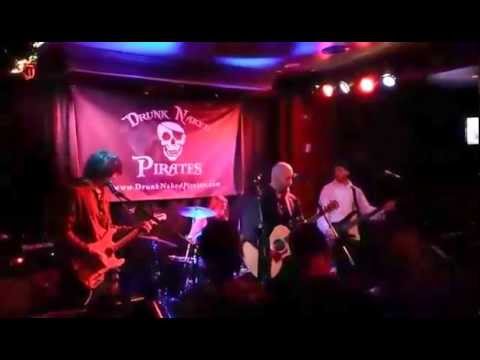If there’s one thing the Drunk Naked Pirates like, as a band, it’s a good time. Just look at their name. Drunk. Naked. Pirates. It’s a moniker that screams fun.
“That’s what the name means — to have a good time,” explained guitarist Mike Loss. “I think it’s something that kind of got thrown around a long time ago and it stuck. But that’s what we’re about. Having fun and having a good time.”
The four-member band, performing Thursday for Alive @ 5 on Carroll Creek, has plenty of experience with that. Over the past five years, they’ve toured the tri-state area covering music from the 1960s on, including current hits.
That blend of songs — with a heavy focus on dance music — has led to plenty of interesting nights, said singer and guitarist Jason Perry. Like one particular show at a bar called Bungalow Billiards in Chantilly, Virginia, where a man jumped onto the dance floor to give his girlfriend a full lap dance.
That same night, a box truck hit drummer Dave Millison’s 1984 Mustang and an as-yet-unidentified fan stole the band’s banner, never to return it. Even that wasn’t quite as memorable as the band’s first Alive @ 5 performance, though, when the crowd finished 17 kegs in an hour.
“Everyone had a good time and it was fantastic,” Perry said. “There’s just something about live performances that rocks, especially with an awesome group of guys, and when everyone’s clicking and everyone’s having a really good time.”
The band’s current members have been together since 2012 and they book events at least two to four times a month, Loss said. Their musical backgrounds vary. Loss, for instance, studied guitar at the Musicians Institute — a for-profit music college in Los Angeles — while Millison is entirely self-taught. Perry picked up the guitar at 13, after years singing in his church choir. Bassist Chris Larkin learned the instrument in his early days as a singer with another group, when his bandmates decided they needed a bass player more than a vocalist.
That experience has allowed the band to move beyond basic covers. Take the group’s version of “Black Betty,” for instance, or “Zombie” by the Cranberries. They’re notably different from the original versions — largely thanks to tweaks or modifications suggested by Loss.
“Mike is the guy who says, ‘Oh, the cover song goes like this; we should go like that,’” Millison said. “Or, ‘Hey, let’s try it like this.’ I think it gives it a little more edge.”
At the same time, adapting original songs can be challenging. Playing covers is a “business decision” for the band, Perry said, but it also requires a level of perfection that isn’t always expected from groups producing their own music. When someone goes up to the band and requests a song by the Rolling Stones, they have something very specific in mind.
“The thing about covers is you’re mimicking what someone else is doing, which is kind of tricky,” Millison said. “With an original song, you’re playing to your ability. With a cover band, you’re playing to the ability of famous musicians. So covers, to me, are more challenging.”

